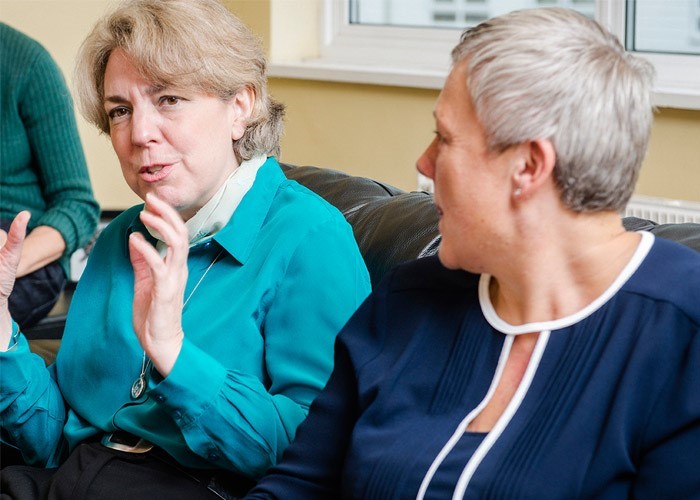We are calling for the needs of patients with incurable cancer to be recognised and addressed by Governments and the NHS across the UK.
We are calling for the needs of patients with incurable cancer to be recognised and addressed by Governments and the NHS across the UK, to ensure thousands of people do not miss out on precious time with their loved ones.

Women with secondary breast cancer are experiencing significant fears due to coronavirus
Thousands of women with incurable breast cancer are experiencing significant fears for their ongoing survival amid delays to treatment, scans and access to trials during the coronavirus outbreak.
As the NHS continues to take extensive steps to keep cancer services running, we are hearing of impacts across breast cancer service through our Helpline and insight work, with secondary breast cancer patients in particular reporting concerns due to changes to their care or the suspension of clinical trials.
Our new survey of over 580 people affected by breast cancer in the UK found that a significant number of secondary breast cancer patients were seeing their chemotherapy or targeted therapy changed or paused temporarily to boost their immune systems, leading to periods of weeks or potentially months without treatments that had been helping to keep their disease stable.
These include people like Joanne, 54 from Stockport, who was diagnosed with secondary breast cancer in April 2017, only weeks after surgery for primary breast cancer. In April, Joanne’s palbociclib treatment, which with letrozole has kept her cancer stable three years, was paused for three months.
She says:
'There are a lot of people like me who’ve had to pause their cancer treatment and not all of us will have good results at the end of this. I’m just hoping that the risk of coronavirus drops low enough soon so that I can restart my treatment.'
The needs of patients with incurable cancer must be recognised and addressed by the UK Governments and the NHS
While many patients reported that their treatment and care had been unaffected, others had seen monitoring scans delayed by up to three months, leaving them uncertain as to whether their current treatment may be working or whether their cancer may be progressing.
NHS clinicians, researchers and experts worldwide have worked rapidly to in develop new protocols to guide treatment decisions during the pandemic, and we hope that for many, changes or short delays to treatment are unlikely to lead to significant long-term impacts.
But we are urging the needs of patients living with advanced cancers to be recognised and addressed as plans to restore NHS services are developed ― to ensure thousands of people do not miss out on precious time with their loved ones.
Our Chief Executive Baroness Delyth Morgan, says:
'It’s extremely concerning to hear of the huge emotional impact the outbreak is having on so many people living with secondary breast cancer. Many women are experiencing or fearing considerable changes to their care, and the level of anxiety, distress and fear that we’ve been hearing on our Helpline is unparalleled in recent years.
'We call on UK Governments and NHS bodies to set out clear plans to ensure everyone living with secondary breast cancer can safely receive the treatment and care they need as soon as possible at covid-free hubs or sites. Without clear plans to restore treatment, services and trials as soon as it is safe and feasible to do so, thousands of people could miss out on precious extra time with their loved ones, which would be absolutely heart-breaking.
'Access to experimental drugs through clinical trials offers such precious hope of life-extension to many living with secondary breast cancer, and the current pause in recruitment to trials will be terrifying. With trials depending on significant numbers of NHS staff and infrastructure, we need UK Governments to set out clear plans to ensure they can resume as soon as it is safe and feasible to do so – not only to restore hope for thousands but to ensure vital research progress does not stall.'
Read the full press release about our survey.
If you’re concerned about your breast cancer treatment, you can call speak to one of our nurses at our Helpline.